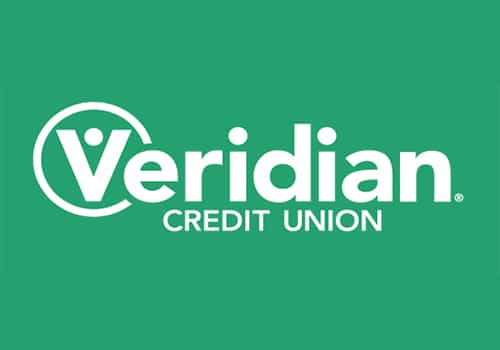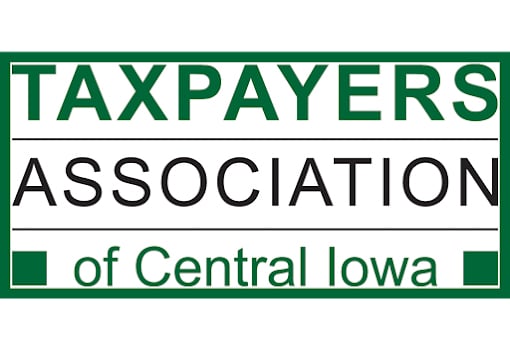Marketplace lenders are here, sort of
A major player says it can take investments but can’t turn them into loans -- yet

KENT DARR Oct 30, 2015 | 11:00 am
5 min read time
1,180 wordsBanking and Finance, Business Record InsiderMarketplace lending is out there, lurking, apparently waiting on a no-expectations invitation from Iowa banking and securities regulators to set up shop.
The multibillion-dollar online arena where borrowers hook up with individuals and institutions willing to bankroll loans is thriving across the country, catching the attention of tech-savvy publications and individuals who admire their relative simplicity and hands-off approach to financial services.
After all, what could be simpler than filling out a form online, finding out within minutes or a couple of days whether you qualify for a loan of up to $35,000, let’s say, to remodel the bathroom or pay off pesky, high-interest credit card debts, and then watch as investors buy into your loan.
That’s attention-grabbing stuff, but apparently it has yet to generate enough enthusiasm in Iowa to catch the attention of regulators or lift so much as a single eyebrow in the bricks-and-mortar banking industry.
When they first emerged, the operations were called peer-to-peer (P2P) lenders, and a large number of their investors were folks sitting at home managing their own investment portfolios. If that doesn’t stoke the home fires in your fiduciary heart, nothing will.
These days, the operations prefer to be called marketplace lenders, a description that at least has a bricks-and-mortar ring to it, even though the financial transactions are conducted online.
The investors have changed, too. According to the second quarter 2014 earnings report of LendingClub Inc., mom-and-pop investors are being replaced by managed funds and institutional investors.
Since its founding in 2007, LendingClub has grown to be the largest player in an arena that is expanding to include lenders who specialize in student loans, covering borrowers with bad credit and startups with no credit.
In a letter last month to the U.S. Treasury Department, LendingClub founder Renaud Laplanche said his company has “facilitated” $11 billion in loans since it opened for business. Those loans have gone to people wanting to clear credit card debt, make home improvements or finance a small business.
The word facilitate is key here. LendingClub takes loan requests over the Internet, but many of the loans are issued by Utah-based WebBank. They are then sold to LendingClub, which in turn sells the loans to investors who are seeking higher returns than they would on other, more conventional investments.
Laplanche wrote the letter at the request of Treasury officials, who wanted a better understanding of how the peer-to-peer marketplace works and whether it should be regulated.
Laplanche said in the 52-page letter that the marketplace is regulated to the extent that LendingClub’s original lending partners are regulated. LendingClub is seeking partnerships with national lenders and community banks, according to the letter to the Treasury Department. The oldest business in the peer-to-peer arena is Prosper Marketplace Inc., whose website says that its loans all originate with WebBank, a 13-employee industrial lender in Salt Lake City.
“Our borrowers benefit from the same regulatory protection as any bank customer as all loans issued through our platform are issued by federally regulated banks,” Laplanche wrote. “Working in partnership with issuing banks has tremendous value to LendingClub and borrowers as it holds us to the highest compliance and regulatory standard.”
On first blush, it does not appear that much, if any, of that lending activity is occurring in Iowa, and if it is, it’s not to a level that would catch the attention of regulators at the Iowa Division of Banking or lawmakers who might hear complaints from constituents.
As of the publication of this article, LendingClub and Prosper had not responded to Business Record requests for information about their operations.
National business publications have reported that neither operation can make loans in Iowa, although LendingClub and Prosper have sought licenses for non-resident lending operations.
Both also would have to register with the state to issue securities to Iowa residents who invest in the loans. LendingClub said in a release earlier this year that it was authorized to take investments from Iowans.
In Iowa, the investment industry is regulated by the securities bureau of the Iowa Division of Insurance.
Iowa Insurance Commissioner Nick Gerhart said he was not aware of any complaints from investors about LendingClub or Prosper.
As with any investment, they could present opportunities and risks, he said.
“There are opportunities for folks. My hope is that when they look into these they keep their eyes open and that they are not using their retirement pots,” Gerhart said.
LendingClub’s earnings report for the second quarter of the year suggests that it is catching the attention of investors large and small.
The California-based company reported $1.9 billion in loan originations, a 90 percent increase from the second quarter of 2014. Institutions made up 30 percent of its pool of investors, with 20 percent coming from individuals who were managing their own investment accounts and 50 percent from firms managing accounts for individual clients.
LendingClub estimated that third-quarter revenues would be in the range of $106 million to $108 million and it adjusted estimates for fiscal year earnings up to $405 million to $409 million from a previous estimate of $385 million to $392 million. (LendingClub’s third-quarter report was released Oct. 29, after this issue of Business Record was printed.)
LendingClub and Prosper, along with other peer-to-peer lenders, are seeking to make loans where more conservative banks might not want to tread.
LendingClub, for example, seeks to team up with community banks to cover personal loans, an area that the smaller banks might want to avoid, according to Laplanche’s letter. In addition, the company offers fixed-term business loans and operating lines of credit to small businesses that might be challenged to provide the security that a small commercial lender would demand.
John Sorensen, president and CEO of the Iowa Bankers Association, said Iowa banks aren’t fretting the competition from peer-to-peer lenders.
“We welcome that competition; it’s what the free market is all about,” he said. “Our only request of policymakers and regulators is that when you do have new entrance into a highly regulated area is that the regulation and taxation be fair; that’s no different from any Main Street business.”
Tom Sands is in the unique position of looking at peer-to-peer lending as a state legislator and as a small-town banker.
To date, the need to regulate peer-to-peer lenders hasn’t risen to the surface of lawmakers’ concerns, he said.
Lending and borrowing in the peer-to-peer marketplace
LendingClub loans:
Personal loans from $1,000 to $35,000 at interest rates from 5.32 percent to 28.99 percent.
Business loans and lines of credit up to $350,000 at interest rates starting at 5.99 percent.
LendingClub investments:
Returns of 7.42 percent on low-risk loans to 25.29 percent on high-risk loans.
Monthly payments of principal and interest as borrowers repay loans.
Prosper loans:
5.99 percent to 39 percent interest on loans from $2,000 to $35,000. Short-term loans to the most creditworthy customers get the lowest rate.
Prosper investments:
Returns of 5.48 percent on the highest-quality loans to 10.78 percent on low-quality, high-risk loans.
Investors are paid as borrowers make payments on their loans.
Sources: lendingclub and Prosper Funding LLC








